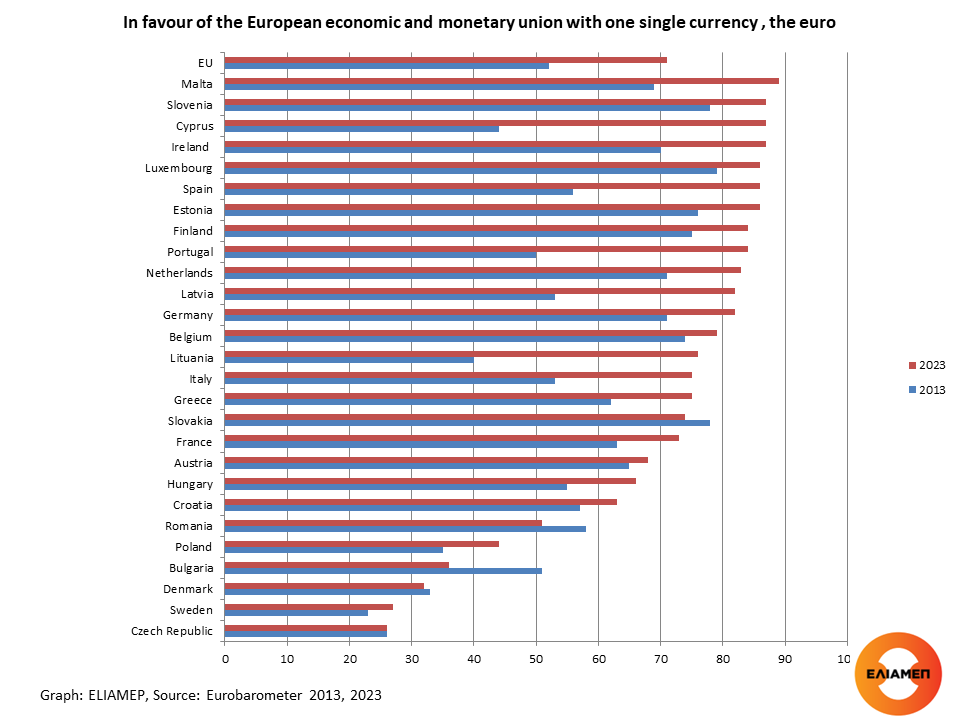The results of the “Eurobarometer“, the regular survey on social and political attitudes among the European publics, organized by the European Commission, have recently been published. The last survey was conducted between January 12 and February 6, 2023.
The research findings are of great interest. This note focuses only on one of them: the degree of support for the Economic and Monetary Union (EMU) and the common currency.
With the energy crisis that followed Russia’s invasion of Ukraine, and the soaring inflation, the euro has fallen below parity with the dollar, (at the end of September, one euro was exchanged for 96 cents). Since then the rate has recovered (it is currently $1.06), but in the meantime some commentators described 2022 as the “the worst year in the euro’s history”.
The vast majority of 26,468 citizens from the 27 member states who took part in the survey do not seem to share this pessimism: 71% of respondents in the EU (79% in the Euro zone) are in favor of EMU and the euro, the second highest percentage ever.
The comparison with the corresponding survey of 2013 shows how much the perceptions of Europeans have changed. Ten years ago, the euro crisis was still not over, especially in Greece. Nonetheless, the situation was looking better after July 2012, when Mario Draghi, then President of the European Central Bank, put an end to the markets’ speculative attacks on bonds of the countries of the southern European region with the famous statement “Whatever it takes“. In 2013 only a marginal majority (52%) of EU respondents were in favor of EMU and the euro.
In Greece, even during the period of deep recession, support for the euro remained quite high: 62% of respondents were in favor of EMU and the euro. It is worth noting that in November 2013, when the “Eurobarometer” survey was conducted, the unemployment rate in Greece reached record highs: 28.7%. Today, unemployment hasfallen to 10.8% and support for the euro has risen to 75%.
In the other countries affected by the euro crisis, the percentage of people that are in favour of the common currency has also increased, in some cases significantly: in Portugal by 34 percentage points (to 84), in Spain by 30 (to 86%), in Italy by 22 (to 75%), in Ireland by 17 (to 87%). The rise is even more spectacular in the newest member states, such as Cyprus (from 44% in 2013, to 87% in 2023) or Lithuania (from 40% to 76%).
Support for the euro is lower in member states outside the Eurozone. However, in Hungary and (marginally) in Romania, the majority supports the common currency. In fact, in Hungary the percentage of respondents in favour of the euro is on the rise: from 55% in 2013, to 66% in 2023. In the other five member states (Czech Republic, Sweden, Denmark, Bulgaria and Poland), the minority of the respondents is in favour of the EMU and the Euro. (However, it is interesting that in Poland the percentage of the respondents that supports the common currency has increased in the last ten years from 35% to 44%)
The overwhelming support of the Europeans for the common currency, in the midst of the unprecedented geopolitical and economic turmoil, can be interpreted as a vote of confidence of the EU citizens in the European project. It is up to European leaders, and economic policy makers, to honor it.




